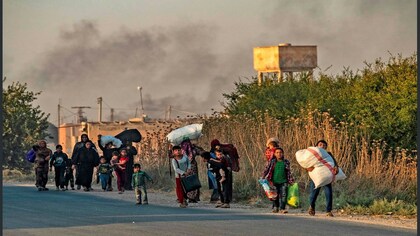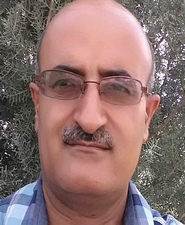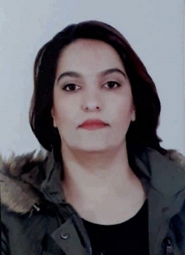It's Time to Bypass Iran's 'Supreme Leader'
21:02 - 12 February 2012

Since President Obama came to office, unconditional engagement with Iran has been official U.S. policy and total rejection of engagement has been official Iranian policy. The president has sent several letters to Iran\'s supreme leader, Ayatollah Ali Khamenei, proposing various types of engagement, but all these ideas have been rebuffed. In March 2010, when the president said \"Faced with an extended hand, Iran\'s leaders have shown only a clenched fist,\" the ayatollah accused him of deceitfully offering a \"metal hand inside a velvet glove.\" It\'s time to acknowledge that engaging Iran\'s supreme leader is hopeless.
The reason for Khamanei\'s refusal to engage is simple: As the strategic architect and ultimate defender of Iran\'s nuclear program, his political standing depends on the survival of the program and on the perception that he can reject all pressure. His persistence amid rising U.S. sanctions determines the credibility of his claim to be \"the leader of Muslim world.\" Any flinching would strengthen his rivals inside the country, because they were aggressively sidelined by him when they advocated a more moderate nuclear policy. Holding firm is an issue of life and death for him.
In this regard, Iran is very different from Iraq under Saddam Hussein. Saddam was able to survive more than a decade of sanctions because the regime was run by a single, ruthless megalomaniac who could eliminate any dissent with a bullet to the back of the head. There was no such thing as a \"political crisis\" in Saddam\'s Iraq because such a regime has no politics. By contrast, Iran is a den of political intrigue, with sophisticated and nuanced maneuvering among factions, albeit within an increasingly narrow element of the elite. In such a system, the leader\'s position is much more vulnerable than in a state of iron-fisted, one-man rule.
Specifically, Khamenei\'s decision to crack down on the protests provoked by the rigged presidential election in 2009 created deep fissures within the Islamic Revolutionary Guard Corps, the vanguard of the regime. Recently retired Gen. Hossein Alai, founder of the Revolutionary Guard Navy and its commander during the Iran-Iraq War, wrote an article for Tehran\'s Ettelaat newspaper that implicitly compared the situation in Iran today with the year prior to the revolution. He suggested that if Khamenei did not reach a political compromise with the reformist leaders of the protest movement, he would be making the same mistake that the Shah made a generation ago.
After Gen. Alai was attacked by the government-run media, some Revolutionary Guard commanders sent him an unsigned letter of support. Already there are signs that some within the Guard may not support Khamenei\'s preferred candidates in parliamentary elections scheduled for March.
What has really stoked the Revolutionary Guard\'s anger at Khamenei is that they see him as responsible for the tougher Western sanctions that have hurt their economic interests. The Revolutionary Guard has been a major player in the Iranian economy for more than two decades. Today, even most private businesses cannot function without some \"special arrangement\" with the Revolutionary Guard. Veterans are prominent in industries ranging from oil, mining and banking to cinema and sports. Most of them have changed from idealist revolutionaries to pragmatic money-lovers.
These cash-happy Islamists have been the main targets of the U.S.-led sanctions. Contrary to claims of anti-sanction activists in the West, the Guard\'s vast economic concerns have been badly bruised by the oil and banking sanctions implemented by Western nations.
To keep the nuclear program afloat and maintain their many business interests, the Revolutionary Guard\'s money men are forced to sell oil below international rates. Khamenei\'s adamant refusal to reach a compromise over the nuclear program has boxed Iran into a corner and cost them billions of dollars.
In Tehran\'s political circles, knowledgeable people are divided as to whether the nuclear crisis will lead to war or find a peaceful resolution. But the latter is only possible if the Revolutionary Guard sidelines Khamenei and forces a compromise. So far, Khamenei has retained the upper hand.
In addition to stymieing the Revolutionary Guard, Khamenei will sabotage any effort by other factions of the Islamic Republic to engage diplomatically with the West. The clerical establishment, which is deeply disaffected from Khamenei, is so economically dependent on the government that it cannot affect Iranian politics in a meaningful way. The old merchant class, equally disaffected, no longer plays a significant economic or political role.
Reformists like onetime president Akbar Hashemi Rafsanjani are gradually being pushed out of the political arena. In March, Mr. Rafsanjani may lose his only remaining position of influence-as head of the regime\'s Expediency Council, which advises the supreme leader.
In this environment, any further effort to engage Khamenei would be futile. A wiser course would be to prepare now to open channels of communication with Revolutionary Guard leaders, who are surely busy planning ways to address the mounting pressure of international sanctions. These are the people who will determine Khamenei\'s successor and whose anger may even lead them to take the reins of the country before he dies. While they are not closet liberals ready for a Tehran Spring, in the aftermath of Khamenei\'s regime they will have their own legitimacy crisis that may compel them to open up abroad in order to consolidate power, popularity and credibility at home.
The Revolutionary Guard, guilty of acts of terror at home and abroad, is by no means a natural partner for the West. But its leaders, with their myriad economic interests and sensitivity to sanctions, are far more inclined than Khamenei to strike a deal on Iran\'s nuclear program. Considering the alternatives, it\'s an opportunity worth pursuing.
Source – Real clear World
The reason for Khamanei\'s refusal to engage is simple: As the strategic architect and ultimate defender of Iran\'s nuclear program, his political standing depends on the survival of the program and on the perception that he can reject all pressure. His persistence amid rising U.S. sanctions determines the credibility of his claim to be \"the leader of Muslim world.\" Any flinching would strengthen his rivals inside the country, because they were aggressively sidelined by him when they advocated a more moderate nuclear policy. Holding firm is an issue of life and death for him.
In this regard, Iran is very different from Iraq under Saddam Hussein. Saddam was able to survive more than a decade of sanctions because the regime was run by a single, ruthless megalomaniac who could eliminate any dissent with a bullet to the back of the head. There was no such thing as a \"political crisis\" in Saddam\'s Iraq because such a regime has no politics. By contrast, Iran is a den of political intrigue, with sophisticated and nuanced maneuvering among factions, albeit within an increasingly narrow element of the elite. In such a system, the leader\'s position is much more vulnerable than in a state of iron-fisted, one-man rule.
Specifically, Khamenei\'s decision to crack down on the protests provoked by the rigged presidential election in 2009 created deep fissures within the Islamic Revolutionary Guard Corps, the vanguard of the regime. Recently retired Gen. Hossein Alai, founder of the Revolutionary Guard Navy and its commander during the Iran-Iraq War, wrote an article for Tehran\'s Ettelaat newspaper that implicitly compared the situation in Iran today with the year prior to the revolution. He suggested that if Khamenei did not reach a political compromise with the reformist leaders of the protest movement, he would be making the same mistake that the Shah made a generation ago.
After Gen. Alai was attacked by the government-run media, some Revolutionary Guard commanders sent him an unsigned letter of support. Already there are signs that some within the Guard may not support Khamenei\'s preferred candidates in parliamentary elections scheduled for March.
What has really stoked the Revolutionary Guard\'s anger at Khamenei is that they see him as responsible for the tougher Western sanctions that have hurt their economic interests. The Revolutionary Guard has been a major player in the Iranian economy for more than two decades. Today, even most private businesses cannot function without some \"special arrangement\" with the Revolutionary Guard. Veterans are prominent in industries ranging from oil, mining and banking to cinema and sports. Most of them have changed from idealist revolutionaries to pragmatic money-lovers.
These cash-happy Islamists have been the main targets of the U.S.-led sanctions. Contrary to claims of anti-sanction activists in the West, the Guard\'s vast economic concerns have been badly bruised by the oil and banking sanctions implemented by Western nations.
To keep the nuclear program afloat and maintain their many business interests, the Revolutionary Guard\'s money men are forced to sell oil below international rates. Khamenei\'s adamant refusal to reach a compromise over the nuclear program has boxed Iran into a corner and cost them billions of dollars.
In Tehran\'s political circles, knowledgeable people are divided as to whether the nuclear crisis will lead to war or find a peaceful resolution. But the latter is only possible if the Revolutionary Guard sidelines Khamenei and forces a compromise. So far, Khamenei has retained the upper hand.
In addition to stymieing the Revolutionary Guard, Khamenei will sabotage any effort by other factions of the Islamic Republic to engage diplomatically with the West. The clerical establishment, which is deeply disaffected from Khamenei, is so economically dependent on the government that it cannot affect Iranian politics in a meaningful way. The old merchant class, equally disaffected, no longer plays a significant economic or political role.
Reformists like onetime president Akbar Hashemi Rafsanjani are gradually being pushed out of the political arena. In March, Mr. Rafsanjani may lose his only remaining position of influence-as head of the regime\'s Expediency Council, which advises the supreme leader.
In this environment, any further effort to engage Khamenei would be futile. A wiser course would be to prepare now to open channels of communication with Revolutionary Guard leaders, who are surely busy planning ways to address the mounting pressure of international sanctions. These are the people who will determine Khamenei\'s successor and whose anger may even lead them to take the reins of the country before he dies. While they are not closet liberals ready for a Tehran Spring, in the aftermath of Khamenei\'s regime they will have their own legitimacy crisis that may compel them to open up abroad in order to consolidate power, popularity and credibility at home.
The Revolutionary Guard, guilty of acts of terror at home and abroad, is by no means a natural partner for the West. But its leaders, with their myriad economic interests and sensitivity to sanctions, are far more inclined than Khamenei to strike a deal on Iran\'s nuclear program. Considering the alternatives, it\'s an opportunity worth pursuing.
Source – Real clear World



